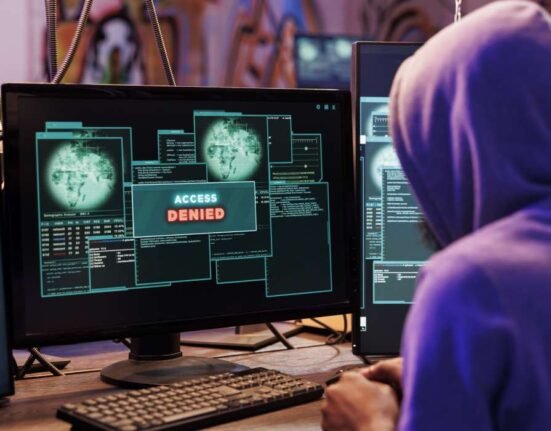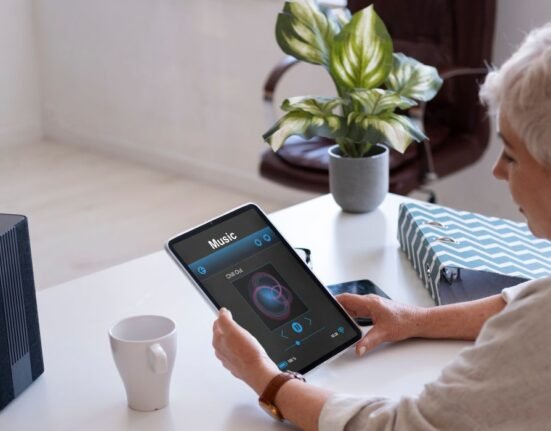We all know that technology can have a serious negative effect on our mental health if we do not limit its use. Cases of youngsters suffering from social media or gaming addiction are often heard in the news. Social media platforms like Instagram and Twitter are also known to indirectly damage the mental health of their users. For example, When influencers and the public share unrealistic ideals on Instagram. It can contribute to inflated beauty and happiness standards. Which often are not true even for themselves. Our mental health is considerably negatively impacted by other sorts of technology that were intended to make our life easier and better.
But is this it? Does this mean there is no positive angle in this relationship between technology and mental well-being? Despite reservations, many experts think technology has the power to address a variety of human problems. Also including those related to mental health. Innovative thinkers from all around the world are continuously developing answers to the problems. But that mankind faces, particularly those related to mental health. To explore this friend and foe nature of technology towards mental health. Let us explore how today’s technology is capable of correcting the blunders it has made in regard to our mental health.
The bleak effect of technology on our mental well being
Technology exists to improve our lives by making them easier, better for our health, and happier. While it greatly achieves that purpose, it also does the complete opposite in many other ways. As it is always best to understand the problems properly before we start looking for their solutions. Let us first understand what aspect of technology gets it the tag of foe to mental health.
- Social media and smartphones have surely connected us with people all around the globe. But this has happened at the cost of our physical and mental health. According to a 2017 study conducted on youngsters between the age of 19-32 years, individuals with excessive use of social media platforms. They are three times more likely to feel isolated than those with normal use.
- Another research done in 2016, found a relationship between the kind of interactions we have on the internet and mental illnesses like anxiety and depression. The research established that individuals who had perceivably more negative exchanges on the internet experienced a higher level of anxiety and depression. As opposed to those who had a more positive exchange.
- A 2018 research analysis found a strong association between ADHD symptoms and excessive use of social media and smartphones, as well as other detrimental consequences on children’s mental health.
- The common aim behind developing all kinds of technology is to make any kind of work as easy as possible for humans. It aim is achieved which is why now most of our day is spent bound to our desks. This sedentary lifestyle puts us at risk of different kinds of health issues. Sitting at our desks all day and not doing real-world physical activities are not only the reason for increased depressive symptoms but also make us prone to heart disease, diabetes, and obesity. and increase the risk of premature death.

Deploying technology to the aid of mental health
Technology is developing at the fastest-ever pace. It is not just giving us fast and easier ways of doing our everyday tasks. But also giving us solutions that almost feel like magic. However, with the changing world, we are also seeing the evolution of older problems and the rise of new problems which is probably due to our new lifestyle.
The COVID-19 pandemic of 2020 has made the general public’s deteriorating mental health even worse, which is a significant issue for the twenty-first century. However, scientists all over the world are working hard to create solutions to this crisis in mental health. Let us look at some tech-based interventions developed to deal with the contemporary mental health crisis.
- Artificial intelligence-assisted therapy: since the beginning of this year we have seen a surge of Artificial Intelligence in the market. These AIs are capable of mimicking human skills to an impressive extent and doing various kinds of work. They can write articles, make 100% original pictures, and solve mathematical problems. Some contend that technology’s potential to advance mental health is its most important accomplishment. AI chatbots like Wysa and Woebot can help patients with mental health issues track their symptoms. In between appointments with human therapists and use cognitive behavioural therapy techniques.
- Digital pills: This technology holds great potential to revolutionize the whole healthcare industry if implemented right. It involves the patient swallowing a that contains a sensor about the size of a sand grain. This sensor is capable of traveling through your body and communicating with outer devices to deliver important information about your compliance with the medication schedule. This can prevent patients from skipping their doses and delaying their treatment which also causes them unnecessary financial loss.
- Symptom tracking tools: Through the use of user-friendly applications, digital symptom tracking enables patients and therapists to track symptoms on a daily basis. The patients can easily monitor their health from home. So, therapists may utilise the information to precisely track progress and evaluate how different lifestyle choices, such as sleep, exercise, nutrition, and medicine, affect the patient’s mental health.
- Virtual reality tools: Mental health doctors are exploring the use of virtual reality headsets to treat patients with social anxiety, PTSD, and OCD. Combining virtual reality with Exposure Response Prevention techniques may help patients prepare for real-life triggers. It particularly in the case of OCD patients who experience recurring, unwanted thoughts and intense cravings to perform certain behaviors. While the technology is still developing, early results show promise.
The Impact of Technology on Mental Health
Technology is playing an increasingly important role in healthcare. By teaching patients using virtual reality and video games to reducing the workload of mental health professionals with digitized record-keeping. It enables earlier diagnosis of severe mental health disorders than was previously possible.
The lockdown in 2020 due to covid-19 pandemic brought Havoc in every industry and caused great suffering to all of us. Fortunately, with time we all got back on our feet and adapted to the situation. By finding new ways of doing our work without breaking any rules and regulations of the lockdown. By converting that necessity into an opportunity, we have opened doors to greater innovations. The rapid and efficient treatment of patients will be made possible by the ongoing development of new technology instruments.













Leave feedback about this